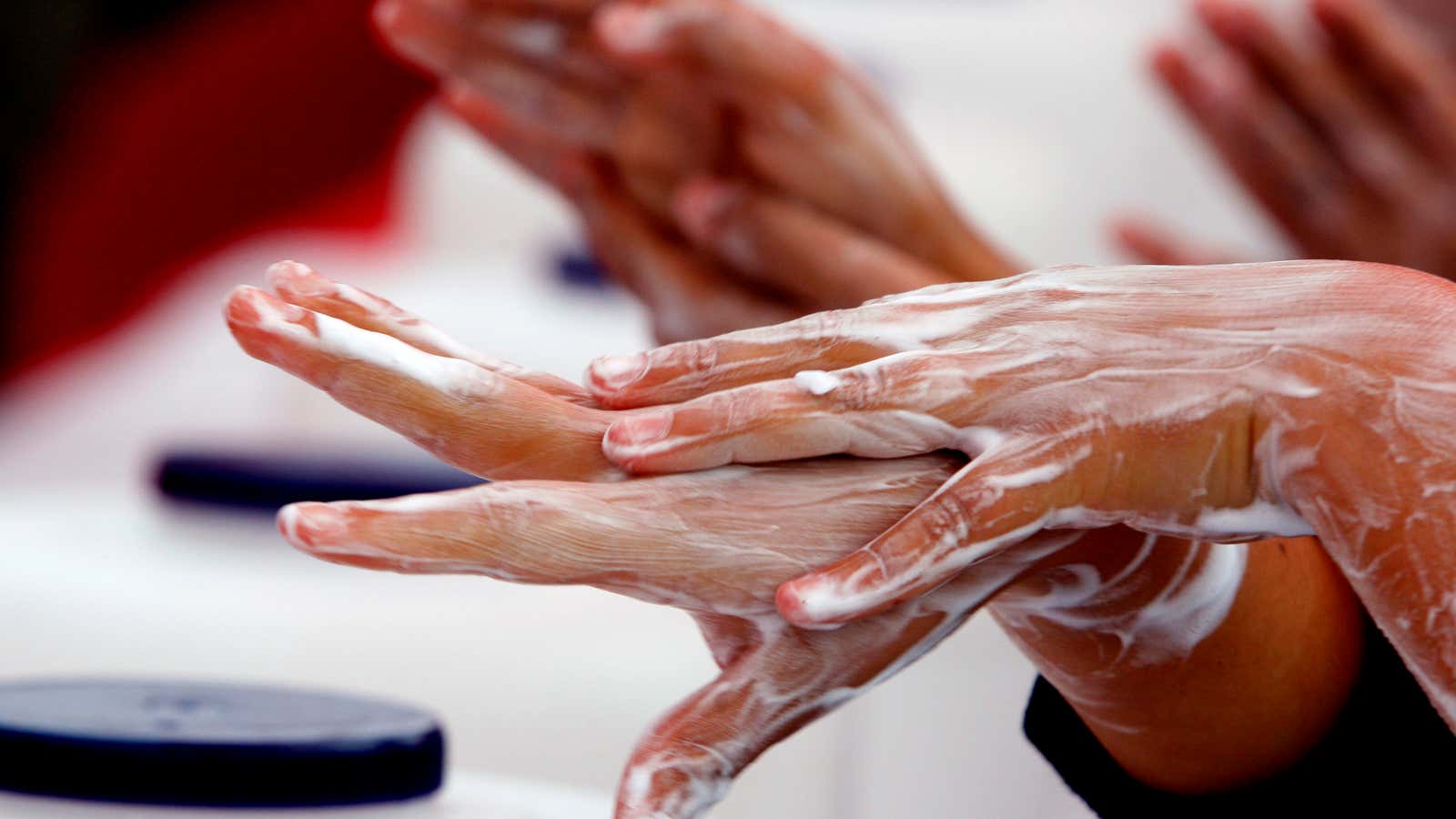Fear is a potent marketing tool. Consider how a Listerine advertising campaign in the 1920s literally turned bad breath into a disease (and sold a ton of mouthwash along the way) or the run on potassium iodide in North America after the Fukushima nuclear power plant disaster in 2011.
Then there are antibacterial soaps and body washes, which have targeted—and arguably created—a widespread fear of disease-causing bacteria lurking on every surface of our homes and bodies. Sales of antibacterial soap skyrocketed during the 2009 H1N1 flu sale and have stayed strong since, as brands marketed their antibacterials as scientifically proven to clean better than the stuff you used to keep by your sink.
The problem was there wasn’t ever really any science there. For years, researchers have been trying to convince consumers that soap and water does just as good a job as antibacterial products when it comes to protecting you from disease. Worse, some of the antibacterial chemicals have proven ill effects: They contribute to the growth of drug-resistant bacteria, cause health problems by destroying helpful bacteria that live on our bodies, and have the potential to disrupt our hormones. And after they flow down our drains, they cause environmental damage to animals and plants.
Today (Sept. 2), the US Food and Drug Administration issued a final rule designed to protect the American public from these chemicals and their marketers: Moving forward, companies will no longer be allowed to market any antibacterial washes that contain one or more of 19 specific active ingredients. The new rule, initially proposed in 2013, gives companies a year to reformulate their products without those chemicals.
“Consumers may think antibacterial washes are more effective at preventing the spread of germs, but we have no scientific evidence that they are any better than plain soap and water,” said Dr. Janet Woodcock, director of the FDA’s Center for Drug Evaluation and Research, in an agency press release. “In fact, some data suggests that antibacterial ingredients may do more harm than good over the long-term.”
The list of newly-banned ingredients includes the two that the FDA says are the most commonly used in antibacterial soaps: triclosan and triclocarban. Triclosan in particular has troubled public health advocates over the years. As STAT News reports, studies done on lab animals show that the chemical can disrupt hormones in the body, leading to all sorts of issues ranging from infertility to impaired brain development and heart function. In addition, the stuff can end up in sewage sludge that gets used as fertilizer—meaning it can re-enter the food chain through crops.
Perhaps the biggest concern is that overuse of these chemicals could fuel the rise of more antibiotic-resistant bacteria. According to a consumer update issued by the FDA along with the new rule, “laboratory studies have raised the possibility that triclosan contributes to making bacteria resistant to antibiotics. Some data shows this resistance may have a significant impact on the effectiveness of medical treatments, such as antibiotics.”
The rule does not affect any other products containing triclosan, which include cosmetics, shaving creams, and even some toothpastes.
It also doesn’t impact the hand sanitizers and sanitizing wipes that have become ubiquitous in offices, homes, and hanging off the backpacks of commuters worried about catching pathogens from their bus seats. The FDA has said it still needs more information on those before making any final rulings.
